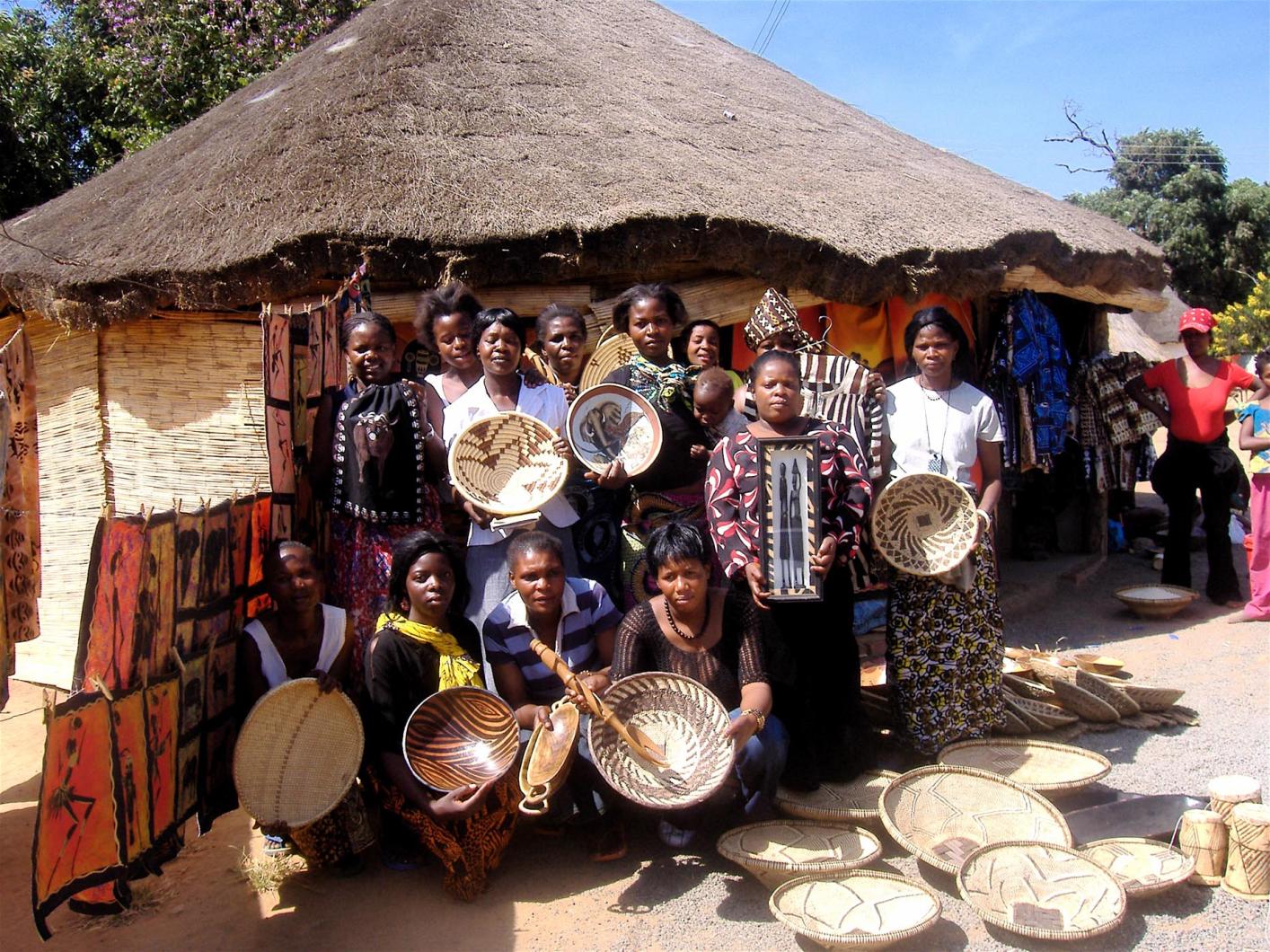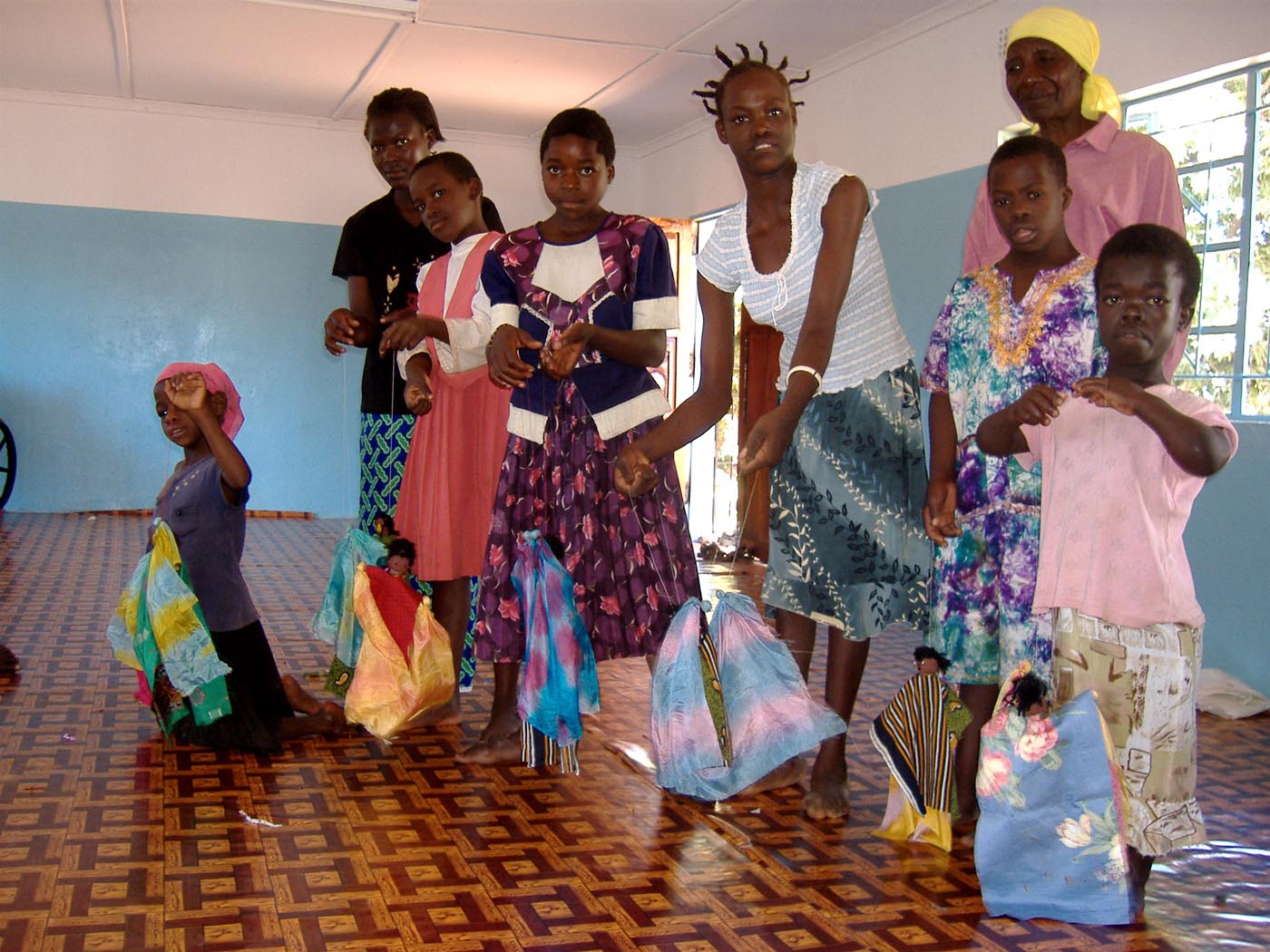Marsha Winsryg first went to Africa over a decade ago. She went armed with curiosity and a passport. She came back with friends, photographs and a big box of carved figurines she had promised a young merchant she would sell in the United States before sending the profit back to his small crafting village in Zambia.
That was only the beginning. In the past 10 years, Ms. Winsryg has returned to Africa three times, started a nonprofit organization devoted to the people she met on her trips, recently completed her first documentary film and has sent thousands and thousands of dollars in aid to African orphans, children with disabilities and craftsmen struggling to make a living.
Her journey started in a small craft market near Victoria Falls on the border of Zambia and Zimbabwe. While visiting her oldest daughter, now 31, who was studying abroad in Tanzania as a college junior, she and her husband made a three-day trip from Tanzania, through Zambia and on into Zimbabwe. They stopped at the market and met a young man who sold her a dancing figurine, then asked if she would buy a box of them to take back to sell in America.
Upon returning to Martha’s Vineyard, Ms. Winsryg sold the crafts as promised and sent the money back to the merchant. Realizing her success, she bought more crafts and began searching for a small nonprofit organization to which she could send the profits. Her search led to the Mama Bakhita Cheshire Center in Livingstone, Zambia. The center, which serves disabled children, is the only one like it in southern Zambia. It opened in 1996 with six children. Since Ms. Winsryg began buying more crafts, selling them here on the Vineyard and sending the profits directly to the center, it has expanded dramatically. The center now serves 75 children with a range of disabilities and provides transportation to major hospitals in the area, physical therapy and counseling to the children and helps parents or caregivers learn and care for their child’s disability.
Ms. Winsryg is drawn to the cause of the children of Zambia in part because of the AIDS epidemic that runs rampant there. After her first trip, she read that one in three Zambians was infected with HIV. The deaths led to an increase in the number of orphans in the country. “The orphan situation was getting worse,” she said. “I was just horrified.” But she did not just want to use money as a Band-Aid. By sending money to organizations that focus on children, she believes the community as a whole will benefit. “First, you are helping the economy by buying the crafts,” she said. “And then, these kids are able to become full productive members of the culture.”
African masks hang on the walls of her West Tisbury home. The hearth is adorned with dancing figurines carved by an old man who sells his wares at the craft market near Victoria Falls. On the clothesline outside hang ceremonial cloths from Zambia and, when giving directions, Ms. Winsryg says she will place a brightly colored conga drum at the foot of the driveway so a guest will know they have the right house. As she sits in her living room, her husband, Island artist Paul Karasik, chimes in from the kitchen. “The crafts are made there, then they come to the U.S. where they turn to profit, then they go back to that community,” he explained. “That’s the really cool thing. All the proceeds go right back to the community, there is no middle man.”
A few years into her relationship with the center, Ms. Winsryg learned of the Upeme Orphanage in Kamaila, a village on the outskirts of Lusaka, the capital of Zambia. When it opened in 2003, the orphanage had no kitchen, no running water, no electricity. Ms. Winsryg began sending money to the facility and spent nearly a week there on her last visit. Now, the orphanage has more staff, but still is in dire need of funding to send its children to secondary school, she said.
Soon after adding the orphanage to her list of beneficiaries, Ms. Winsryg started a nonprofit organization, African Artists’ Community Development Project. Through it, Ms. Winsryg continues to sell the crafts and artwork imported from Zambian artists and returns the profits to Mama Bakhita Center and the Upeme Orphanage.
In May, Ms. Winsryg made her fourth trip to the country. She brought along her youngest daughter, Nora, 17, a student at the Martha’s Vineyard Public Charter School. With a camera borrowed from MVTV — neither mother nor daughter had used one before — Nora shot five hours of film during their two-week trip. She filmed the craft markets and the children at the orphanage making puppets. She filmed the Mama Bakhita center, which recently added a two-room schoolhouse with a physical therapy room, which cannot open because the staff has no money for furniture or even a car to transport it.
Upon their return, MVTV helped Ms. Winsryg edit her daughter’s footage into a nearly 20-minute documentary film called Waging Peace in Zambia. “It’s exciting for people to see what we’re doing, where we were doing it and who we’re doing it with,” Ms. Winsryg said.
Tomorrow night at 6:30, the director’s cut of the film will premiere at the Martha’s Vineyard Hebrew Center. A question and answer session will follow. Zambian arts and crafts — baskets, malachite jewelry, wooden carvings and much more — will be on sale, and other items will be up for bidding through a silent auction. The proceeds will go towards outfitting the addition at the Mama Bakhita center and sending children at the orphanage on to secondary school.
As for Ms. Winsryg, she knows she will return to Africa soon, but has no trip scheduled. “I go about every two years,” she said. “I would go more frequently, but it is so expensive and I would rather be sending that money directly back to the African communities.”






Comments
Comment policy »